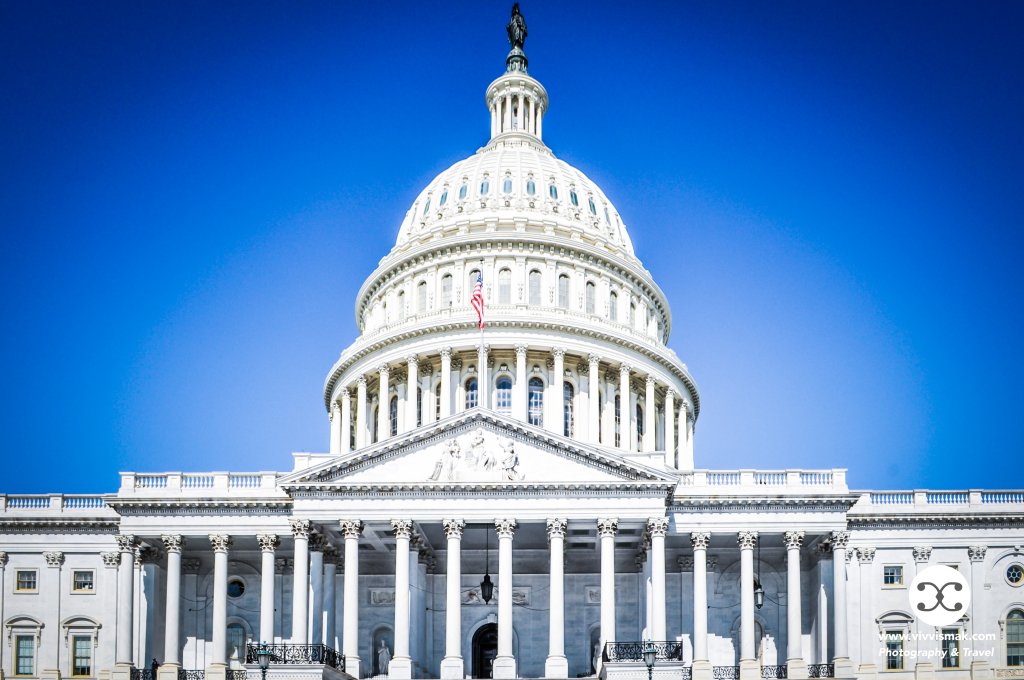For the Week ending March 20th
APPROVING $100 BILLION TO ADDRESS CORONAVIRUS: Voting 90 for and eight against, the Senate on March 18 sent President Trump a $100 billion safety-net and economic stimulus package to help families, individuals and small and medium-size businesses cope with the first wave of the coronavirus outbreak in the United States. In part, the bill (HR 6201) would fund free virus testing for all who request it; emergency food aid for the poor, seniors and K-12 students; enhanced unemployment benefits; and stepped up Medicaid and public-health outlays.
In addition, the bill would authorize 10 days’ paid sick leave through December to individuals and households affected by the pandemic, using tax credits to reimburse employers the full cost of providing the leave. The payments would have to be at least two-thirds of normal pay and capped at $1,000 per week. Government employees would receive equivalent sick-leave benefits. But companies with 500 or more employees, which account for slightly more than half of the U.S. workforce, would be exempted from having to pay sick leave, and those with fewer than 50 workers, which supply about a quarter of the private work force, could request hardship exemptions. So the bill is projected to deliver paid sick leave to only 20-to-25% of the country’s private workforce, a share Congress is expected to increase in its next coronavirus legislation.
The bill also would provide workers at companies affected by the coronavirus with up to 15 days’ paid medical and family leave, which would kick in after expiration of the sick leave. As with sick leave, firms employing more than 500 workers would be exempted and those with fewer than 50 workers could seek exemptions.
A yes vote was to send the bill to the White House.
YES: Tom Udall, D, Martin Heinrich, D
DECLINING TO EXPAND SICK LEAVE AND FAMILY LEAVE: Voting 47 for and 51 against, the Senate on March 18 defeated a Democratic-sponsored bid to amend HR 6201 (above) to include (1) more inclusive paid sick leave during the coronavirus pandemic and (2) first-time, permanent availability of paid leave to the private sector during all types of emergencies under the 1993 Family and Medical Leave Act.
First, the amendment sought to provide all private sector employees and independent contractors affected by any public-health emergency including the coronavirus outbreak with 14 days’ paid sick leave through 2021, with employers receiving immediate Treasury reimbursement for their payments when they show documentation to the Department of Labor. This provision was more advantageous to both workers and employers than the sick-leave benefit in the underlying bill.
Second, the amendment sought to permanently expand the family and medical leave law to include 12 weeks’ paid leave for private-sector workers during emergencies; the act now authorizes paid emergency leave (also 12 weeks) only to federal civil servants. The amendment also attempted to permanently provide workers with seven days’ accrued paid sick leave under the 1993 law. There was no comparable provision in the underlying bill.
A yes vote was to adopt the amendment.
YES: Udall, Heinrich
KEEPING PAID SICK LEAVE UNDER FEDERAL CONTROL: Voting 50 for and 48 against, the Senate failed to reach a 60-vote threshold for adopting a Republican-sponsored bid to transfer the administration of paid sick leave in HR 6201 (above) from employers and federal agencies to state-run unemployment insurance programs. In the underlying bill, employers would pay the sick leave and then receive full Treasury reimbursement by means of tax credits. Under the GOP amendment, state jobless programs would make payments and reimburse employers, and then shut down the program at the end of the year.
A yes vote was to adopt the amendment.
NO: Udall, Heinrich
DECLINING TO OFFSET COST OF CORONAVIRUS BILL: On a tally of three for and 95 against, the Senate on March 18 defeated an amendment that sought to offset the projected $100 billion cost of HR 6201 (above) by cuts elsewhere in the federal budget. The amendment also sought to limit the payment of the bill’s child tax-credits to families with a Social Security number, a provision seen by critics as anti-immigrant. As later signed into law by President Trump, the bill would consist almost entirely of deficit spending.
A yes vote was to adopt the amendment
NO: Udall, Heinrich
HOUSE Deb Haaland (D) Ben Ray Luján (D) Xochitl Torres Small (D)
SENATE Martin Heinrich (D) Tom Udall (D)
Contact your legislators at the U.S. Capitol
Zip codes: House 20515, Senate 20510
Capitol operator: (202) 224-3121
Courtesy of Voterama In Congress © 2020 Thomas Reports Inc.

